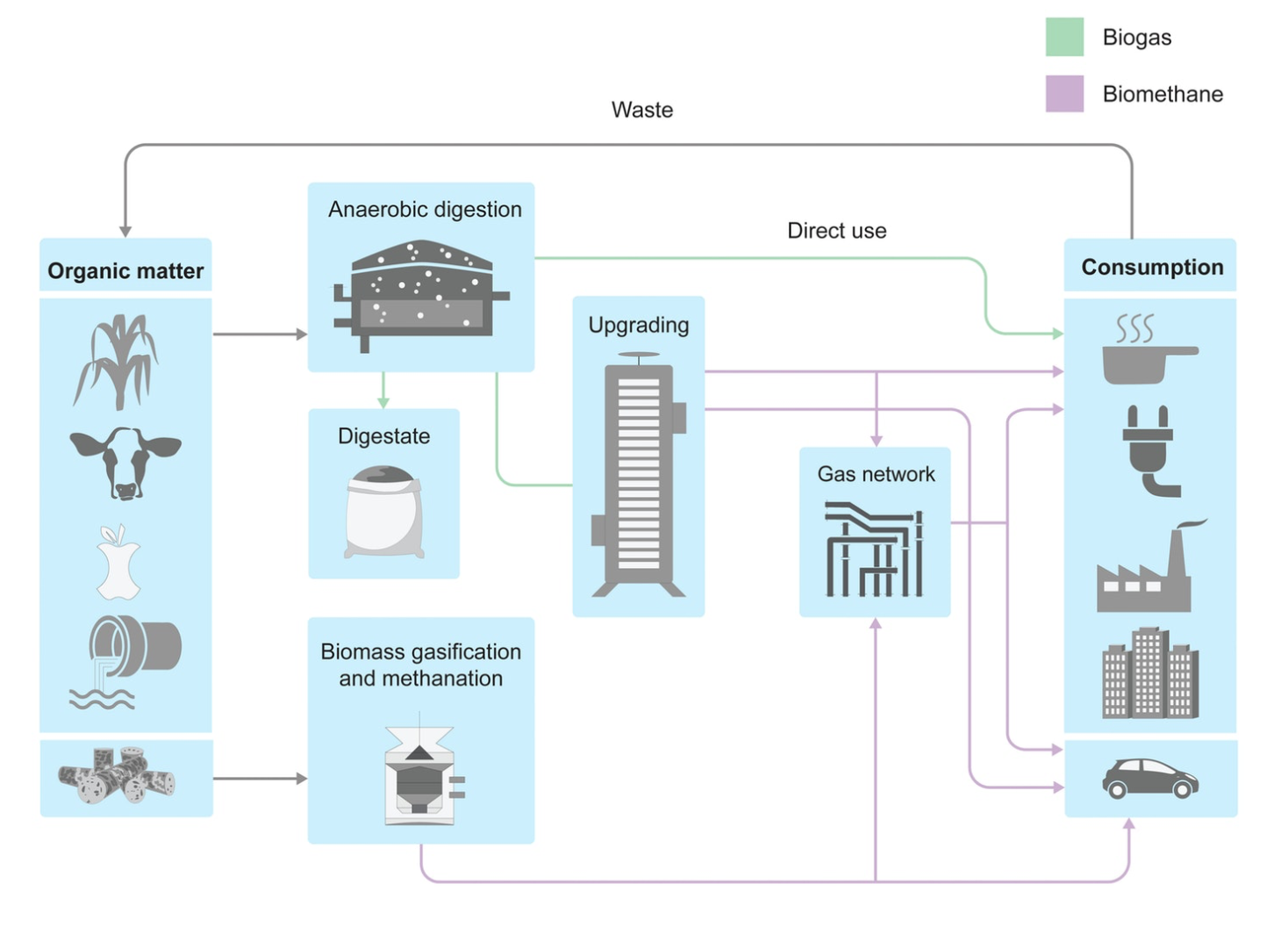Global outlook for biogas and biomethane by IEA 2020
The case for biogas and biomethane lies at the intersection of two critical challenges of modern life: dealing with the increasing amount of organic waste that is produced by modern societies and economies, and the imperative to reduce global greenhouse gas (GHG) emissions.
By turning organic waste into a renewable energy resource, the production of biogas or biomethane offers a window onto a world in which resources are continuously used and reused, and one in which rising demand for energy services can be met while also delivering wider environmental benefits.
Biogas can be a valuable local source of power and heat, as well as a clean cooking fuel to displace reliance on the traditional use of solid biomass in many developing countries. There are also potential co-benefits in terms of agricultural productivity (as a result of using the residual “digestate” from biodigesters as a fertiliser) and reducing deforestation.
When upgraded, biomethane (also known as renewable natural gas) is indistinguishable from natural gas and so can be transported and used in the same way. Biomethane can deliver the energy system benefits of natural gas while being carbon-neutral.
The value of biogas and biomethane is heightened in scenarios such as the IEA Sustainable Development Scenario (SDS), which meet in full the world’s goals to tackle climate change, improve air quality and provide access to modern energy. Biogas and biomethane have the potential to support all aspects of the SDS, which charts a path fully consistent with the Paris Agreement by holding the rise in global temperatures to “well below 2°C … and pursuing efforts to limit [it] to 1.5°C”, and meets objectives related to universal energy access and cleaner air.

Read more about Outlook in the UABIO Article.
Source: IEA (2020), “Outlook for biogas and biomethane: Prospects for organic growth”, IEA, Paris https://www.iea.org/reports/outlook-for-biogas-and-biomethane-prospects-for-organic-growth


